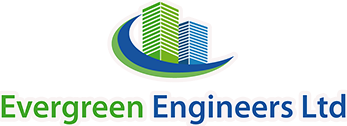Purchasing a home is a significant investment, both financially and emotionally. It’s a decision that requires careful consideration and thorough evaluation to ensure that the property meets your needs, is structurally sound and doesn’t hide any costly surprises. One crucial step in this process is a comprehensive home inspection conducted by a qualified professional. In this blog post, we’ll delve into the importance of home inspections, what they entail, and how they can safeguard your investment.
Understanding Home Inspections
A home inspection is a detailed assessment of a property’s condition, typically conducted by a certified home inspector. The purpose of a home inspection is to identify any existing or potential issues with the home’s structure, systems, and components. This includes but is not limited to:
Structural Integrity: Assessing the foundation, walls, roof, and overall structural stability of the property.
Electrical Systems: Checking wiring, outlets, circuit breakers, and ensuring compliance with safety standards.
Plumbing Systems: Inspecting pipes, fixtures, water heaters, drainage, and detecting any leaks or water damage.
HVAC Systems: Evaluating heating, ventilation, and air conditioning systems for efficiency and functionality.
Appliances: Testing and inspecting appliances such as stoves, refrigerators, dishwashers, and laundry machines.
Interior and Exterior: Examining walls, ceilings, floors, windows, doors, siding, decks, and landscaping features.
Safety Hazards: Identifying potential safety hazards like mold, asbestos, radon, lead paint, and carbon monoxide leaks.
Benefits of a Home Inspection
Risk Mitigation: A thorough home inspection helps uncover potential issues early on, allowing buyers to negotiate repairs or adjustments to the sale price before finalizing the purchase.
Informed Decision-Making: Armed with detailed inspection reports, buyers can make informed decisions about whether to proceed with the purchase, renegotiate terms, or walk away from a deal if the issues are too significant.
Long-Term Savings: Identifying and addressing issues during the inspection phase can save buyers from costly repairs or renovations down the line, ultimately protecting their investment.
Negotiation Leverage: Inspection findings can provide leverage during negotiations, giving buyers the opportunity to request repairs, replacements, or credits from sellers.
Peace of Mind: Knowing the true condition of the property gives buyers peace of mind and confidence in their investment, ensuring they are making a well-informed and prudent decision.
Compliance and Safety: Home inspections ensure that properties meet safety standards, building codes, and regulatory requirements, reducing the risk of future liabilities.
Choosing a Qualified Home Inspector
When scheduling a home inspection, it’s essential to hire a qualified and experienced home inspector. Consider the following factors:
Certification: Ensure the inspector is certified by reputable organizations such as the International Association of Certified Home Inspectors (InterNACHI) or the American Society of Home Inspectors (ASHI).
Experience: Look for inspectors with a proven track record and extensive experience in conducting thorough and detailed inspections.
References and Reviews: Seek references from previous clients and check online reviews to gauge the inspector’s reputation and professionalism.
Insurance and Licenses: Verify that the inspector carries professional liability insurance and holds any required licenses or credentials in your state or region.
Sample Reports: Request sample inspection reports to understand the level of detail and clarity provided by the inspector in their findings.
The Home Inspection Process
Scheduling: Coordinate with your real estate agent to schedule a home inspection after an offer is accepted but before finalizing the purchase contract.
Attend the Inspection: Whenever possible, attend the inspection to observe firsthand and ask questions about the property’s condition and any identified issues.
Comprehensive Evaluation: The inspector will conduct a thorough examination of the property, documenting findings and taking photographs as necessary.
Report Generation: After the inspection, the inspector will generate a detailed report outlining their findings, including any deficiencies, recommended repairs, and maintenance suggestions.
Review and Negotiation: Review the inspection report carefully and discuss significant findings with your real estate agent. Use the report as a basis for negotiation with the seller regarding repairs, credits, or adjustments to the sale price.
Post-Inspection Actions: Depending on the inspection results, you may proceed with the purchase as is, request repairs or concessions from the seller, or decide to walk away from the deal if the issues are too extensive or costly to address.
Common Inspection Findings
While every home inspection is unique, some common findings may include:
Roof Damage: Missing shingles, leaks, or signs of wear and tear.
Electrical Issues: Outdated wiring, overloaded circuits, faulty outlets, or safety hazards.
Plumbing Problems: Leaky pipes, water pressure issues, drainage problems, or sewer line issues.
Structural Concerns: Foundation cracks, uneven floors, sagging ceilings, or compromised load-bearing walls.
Mold and Moisture: Evidence of mold growth, water intrusion, or inadequate ventilation.
HVAC Malfunctions: Inefficient heating or cooling systems, improper ventilation, or ductwork issues.
Safety Hazards: Presence of asbestos, lead paint, radon gas, or other environmental hazards.
Appliance Functionality: Testing appliances to ensure they are in working order and meet safety
In conclusion, a home inspection is a vital step in the home buying process, offering buyers invaluable insights into the property’s condition and helping them make informed decisions about their investment. By partnering with a qualified home inspector, buyers can identify potential issues, mitigate risks, negotiate effectively, and ensure that their new home is a sound and safe investment for years to come.
For more information you can contact us or call us at 07500242494 / 020 3129 5156.

